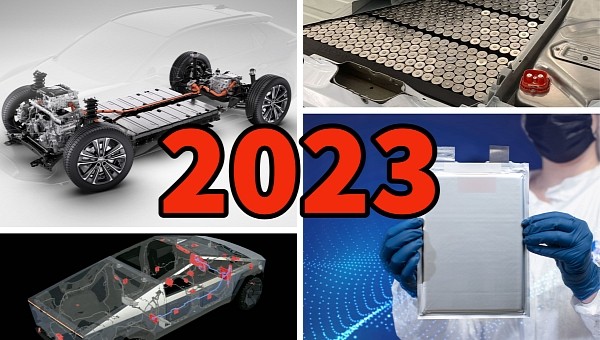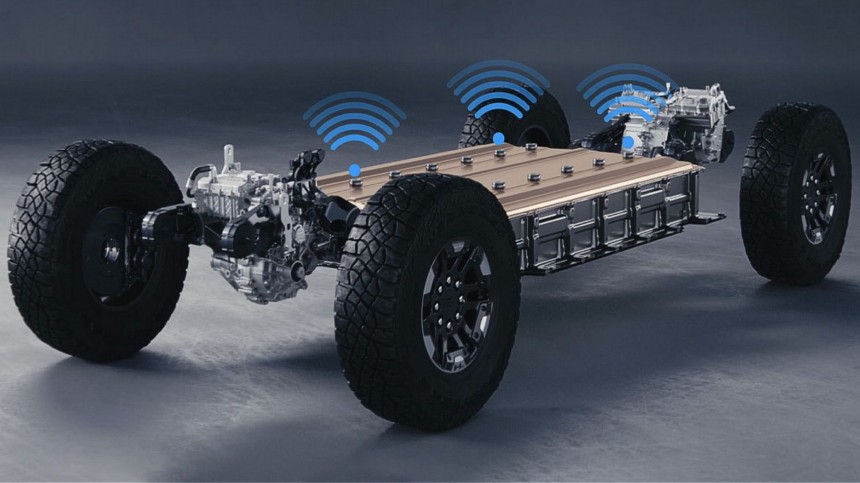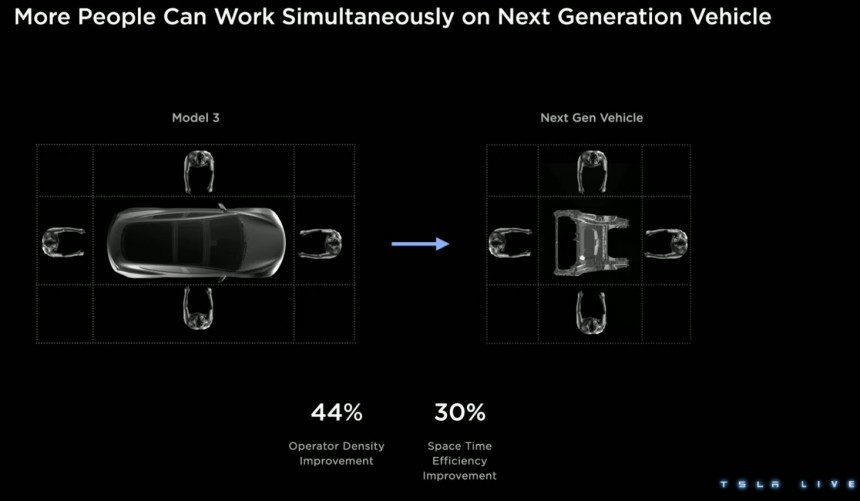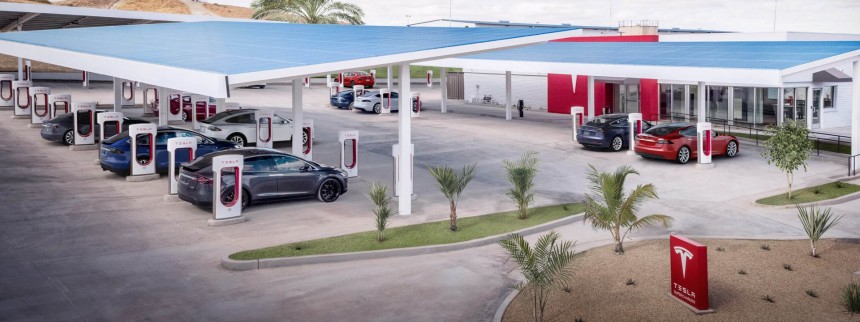Electric vehicle adoption is accelerating, and many people believe 2023 is the year they will finally get the recognition they deserve. Prices will go down, production volumes will go up, and technology will finally catch up with gas-powered vehicles in terms of convenience and range. It's high time to explore the trends shaping the automotive landscape in 2023.
Everybody is talking about electric vehicles, even the most stubborn truck drivers. And yet, some people still think that the combustion engine will somehow return from the dead for a re-run. Either by burning hydrogen, as Toyota wants it, or synthetic fuels, as Volkswagen wishes. There are many reasons that this is nothing more than wishful thinking. It might seem like the easy path forward, considering that nothing really changes. We're still burning fuel of sorts, and we get to keep our beloved combustion engine.
The world is not standing still, though. While traditional carmakers try to preserve their old way of doing business, industry disruptors are working hard to offer a better alternative. Electric vehicles are still in their infancy but have many advantages compared to ICE cars. They are less complex, have lower operating costs, and can convert most of the energy consumed into motion. They are still expensive, hindering adoption, but that is set to change quickly.
2023 is the year things will get wild regarding electric vehicles. Since 2017, global ICE vehicle sales have steadily declined, and there's no way they will return to their former glory. At the same time, EV sales have shown impressive gains, displacing the combustion vehicles in all but edge use cases. And things are accelerating in all directions, from new batteries to better design and manufacturing, to more charging options. Here are the technologies that will forever change the automotive industry in 2023.
Many consider that electric vehicles are just big batteries on wheels, and at first sight, they are not far from the truth. But electric vehicles are much more than that and clearly much more than combustion-engine vehicles. Electric vehicles are software-driven, and not getting this is the biggest mistake traditional carmakers make when trying to overpass Tesla. Car buyers today don't want a car to get from A to B. They want cutting-edge technology and a sense that they belong to the future, not the past.
If there's anything different in 2023 is that Tesla has shown the establishment that you can sell electric vehicles and still make a load of money, even without adding subscriptions to the revenue stream. Tesla has changed the car design and manufacturing, streamlining the production process and making it more efficient. Single-piece megacastings have eliminated hundreds of separate body parts, while the structural battery packs have eliminated redundant parts.
In some segments, we've already seen the marks. Traditional carmakers, one by one, have abandoned their ambitions to develop autonomous vehicles. Argo AI is gone, after Volkswagen and Ford gave up, not until writing off billions of dollars. GM's Cruise is still standing but burning money at an alarming rate. Given recent cost cuts announced by Mary Barra, we'll likely see the demise of Cruise. Like Argo AI, it would probably be absorbed into GM to develop driver assist systems like the Ultra Cruise. Few people would speak about robotaxis at the end of this year unless Tesla achieves an unlikely breakthrough with its Full Self-Driving system.
Expect 2023 to bring more breakthroughs in battery chemistries as research in Sodium-ion and Lithium-air batteries advances. Solid-state batteries are just around the corner, promising more stability and safety, as well as increased energy density. "Classic" Li-Ion batteries will also see improvements, with Tesla expected to crack the dry battery electrode manufacturing process, which will bring benefits in production volumes and costs.
Another big factor that will take off in 2023 is AI-driven research in all areas, from car design to discovering new materials for the batteries of tomorrow. It's not by chance that Tesla has established a computational chemistry team and uses machine learning to accelerate battery development. Expect big results by the end of the year, leapfrogging all other areas in the speed of development.
There are exciting times ahead, and 2023 is just a humble beginning. While many still dismiss electric vehicles as an intermediary step, I assure you they are here to stay longer than us. Many things are going on in this field, and the forerunners started the race many years ago while others are still strolling. Those left behind are about to give a new meaning to the "Kodak moment" phrase. They just don't admit it yet.
The world is not standing still, though. While traditional carmakers try to preserve their old way of doing business, industry disruptors are working hard to offer a better alternative. Electric vehicles are still in their infancy but have many advantages compared to ICE cars. They are less complex, have lower operating costs, and can convert most of the energy consumed into motion. They are still expensive, hindering adoption, but that is set to change quickly.
2023 is the year things will get wild regarding electric vehicles. Since 2017, global ICE vehicle sales have steadily declined, and there's no way they will return to their former glory. At the same time, EV sales have shown impressive gains, displacing the combustion vehicles in all but edge use cases. And things are accelerating in all directions, from new batteries to better design and manufacturing, to more charging options. Here are the technologies that will forever change the automotive industry in 2023.
EVs are software driven
If there's anything different in 2023 is that Tesla has shown the establishment that you can sell electric vehicles and still make a load of money, even without adding subscriptions to the revenue stream. Tesla has changed the car design and manufacturing, streamlining the production process and making it more efficient. Single-piece megacastings have eliminated hundreds of separate body parts, while the structural battery packs have eliminated redundant parts.
A revolution in car manufacturing
Legacy carmakers have shown their interest in pursuing similar manufacturing methods. However, Tesla has already moved further, announcing the "Unboxed Vehicle" manufacturing process. It will be first implemented at Giga Mexico and will allow Tesla to cut manufacturing costs in half. This equals a new manufacturing revolution, and legacy carmakers will take a lot more time to catch up. Expect some of them to not make it on the other side, or at least not alone. Consolidation is the name of the game, and we'll likely see the first signs by the end of this year.2023 is the year of LFP batteries
More interesting things are happening in the EV battery sector. After all, electric vehicles are big batteries on wheels and thus heavily dependent on improving their technology. The major trend to look for in 2023 is the rising of LFP battery cells, which will replace the NCA/NCM chemistries in all but the most performant electric vehicles. Cheaper, safer, and with a longer lifecycle, LFP cells are constantly improving, nearing performance parity with ternary cells.Expect 2023 to bring more breakthroughs in battery chemistries as research in Sodium-ion and Lithium-air batteries advances. Solid-state batteries are just around the corner, promising more stability and safety, as well as increased energy density. "Classic" Li-Ion batteries will also see improvements, with Tesla expected to crack the dry battery electrode manufacturing process, which will bring benefits in production volumes and costs.
It's AI time in all areas
Charging infrastructure will vastly extend throughout the year, thanks to the incentives in the NEVI program in the U.S. As more EV models adopt a 900-volt architecture, charging networks will also embrace this standard, opening new horizons in ultra-fast charging and efficiency. Lowering the charge times will make electric vehicles more convenient to use.There are exciting times ahead, and 2023 is just a humble beginning. While many still dismiss electric vehicles as an intermediary step, I assure you they are here to stay longer than us. Many things are going on in this field, and the forerunners started the race many years ago while others are still strolling. Those left behind are about to give a new meaning to the "Kodak moment" phrase. They just don't admit it yet.












